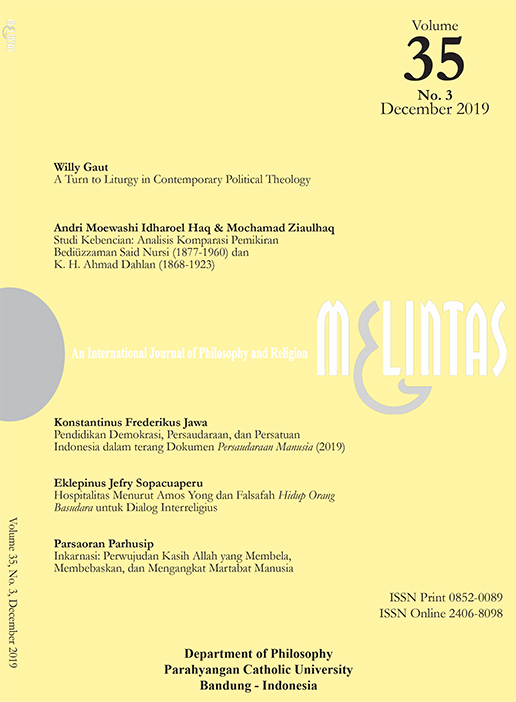A Turn to Liturgy in Contemporary Political Theology
DOI:
https://doi.org/10.26593/mel.v35i3.4659.232-257Keywords:
political theology, liturgy, the church, postliberal political theology, kingdom of god, christian ethicsAbstract
Contemporary development of Christian political theology has been marked, among others, by a turn to liturgy. At first glance, such a turn might be easily associated with the sound principle of the inextricable connection between vita activa and vita contemplativa. The turn to liturgy, therefore, aims to affirm that mystics (the life of prayer) and politics (social engagement) should go hand in hand. However, does this classical idea stand as the sole reason for the turn to liturgy in the contemporary discussion in political theology? In this article, the author argues that while this classical argument still provides part of the answer to that question, the turn to liturgy in contemporary political theology to a considerable extent deals with the question of self-definition of the Church in exercising its political engagement. The turn to liturgy insists that the Church is inherently political, and thus its political significance is not defined by its relationship with the politics of the state alone. On the contrary, the political nature of the Church and its political role wells up from its identity as the sign and instrument of the Kingdom of God. As such, in its political engagement, the Church ought not to be considered merely as a social or voluntary organization.Downloads
Published
2021-03-04
Issue
Section
Articles
License
MELINTAS applies the Creative Commons Attribution (CC BY NC) license to articles and other works we publish. If you submit your paper for publication by MELINTAS, you agree to have the CC BY NC license applied to your work.


